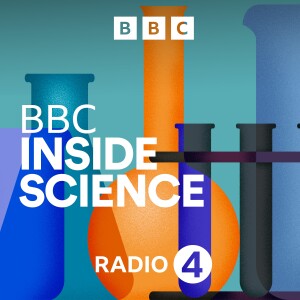
Precious Metals, Earlier Eggs, and Meaningful Meteorites
 2022-06-02
2022-06-02
Download
Right click and do "save link as"
With the cost of living spiralling, many are probably thinking more about the price of food than lithium, titanium, copper or platinum. But the volatility in the global market for these materials - partly because of the pandemic and geopolitical unrest - is causing 'chaos' in the technology supply chain. Elizabeth Ratcliffe, Royal Society of Chemistry, tells Vic that many of us are unwittingly stockpiling these precious metals in our homes, in our old phones and defunct computers, because we don't know what to do with them. Reporter Samara Linton visits N2S, a company in Bury St Edmunds which has found a way to recycle the precious metals and other scarce elements in discarded circuit boards using bacteria.
This week more evidence that spring is springing earlier, as Vic heads to what might be the most studied woodland in the world: Wytham Woods in Oxfordshire. Ella Cole, Oxford University, explains how climate change is causing birds to lay eggs three weeks earlier than they did in the 1940s. And Chris Perrins, of Oxford University, shares his thoughts on the changing woodland.
And from new life to the very stuff of life. Could the building blocks of DNA have first been delivered to earth on a meteorite? In a paper in Nature Communications, scientists announce the discovery of the last two of the five key nucleobases locked in meteorites dating to the formation of the solar system. Samples of the Murchison Meteorite, a specific type of soft, loamy rock (CM2 carbonaceous chondrite) that fell to earth in 1969, have been re-examined, and the confirmation extends the ongoing debate around the nature and composition of terrestrial life's original crucible. Sara Russell, Professor of Planetary Sciences at London's Natural History Museum, helps Vic unravel the complicated and surprisingly controversial history of space rocks and primordial soup.
Presented by Vic Gill
Producer: Alex Mansfield
Reporter: Samara Linton
view more
More Episodes
Rise of the Robots: 3. Where is my mind?
 2017-03-15
2017-03-15
 2017-03-15
2017-03-15
Cells and Celluloid: Aliens on Film
 2017-03-09
2017-03-09
 2017-03-09
2017-03-09
Rise of the Robots: 2. More human than human
 2017-03-06
2017-03-06
 2017-03-06
2017-03-06
012345678910111213141516171819
Create your
podcast in
minutes
- Full-featured podcast site
- Unlimited storage and bandwidth
- Comprehensive podcast stats
- Distribute to Apple Podcasts, Spotify, and more
- Make money with your podcast
It is Free
- Privacy Policy
- Cookie Policy
- Terms of Use
- Consent Preferences
- Copyright © 2015-2024 Podbean.com


